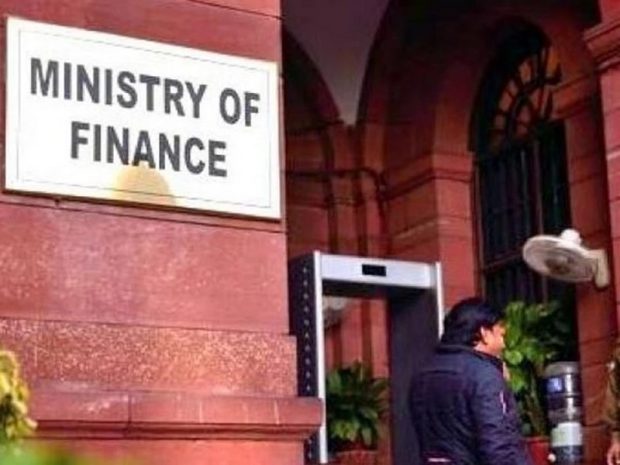
FinMin asks banks to explore fintech partnership, co-lending opportunities
PTI, Jun 26, 2022, 2:57 PM IST

Image credit: ANI / File
New Delhi: The Finance Ministry has asked public sector banks to explore fintech partnerships and co-lending opportunities to expand their business.
In the recently concluded performance review of PSBs by the Finance Ministry, sources said, lenders were asked to focus on technology and data analytics to push their lending.
The ministry also urged the heads of the public sector lenders to strengthen IT security systems and cybersecurity to check fraud.
According to the sources, banks were asked to sanction loans for productive sectors to accelerate the revival of the economy facing headwinds, including the Russia-Ukraine war.
As per the RBI’s latest data, growth in lending by PSBs has improved significantly to 7.8 percent in March 2022 from 3.6 percent a year ago. Some of the PSBs recorded 26 percent growth.
Bank of Maharashtra (BoM) recorded a 26 percent increase in gross advances to Rs 1,35,240 crore at the end of March 2022. It was followed by the State Bank of India and Union Bank of India with 10.27 percent and 9.66 percent growth, respectively.
The Pune-headquartered BoM witnessed a 16.26 percent deposit growth and mobilized Rs 2,02,294 crore at the end of March 2022. Union Bank of India was the second with an 11.99 percent growth in deposits (Rs 10,32,102 crore), while Indian Bank recorded a 10 percent rise to Rs 5,84,661 crore.
The sources said banks were asked to expedite non-performing assets (NPAs) resolution and focus on the recovery of bad loans.
The meeting took stock of asset quality and business growth plans of banks, the sources said, adding that non-performing assets (NPAs) of Rs 100 crore and the recovery status were also discussed.
It is to be noted that the meeting was held against the backdrop when all PSBs posted a profit in the second financial year in a row. They have more than doubled its net profit to Rs 66,539 crore in FY22. The collective profit of 12 state-owned banks together was Rs 31,820 crore in FY21.
However, there were collective losses for five straight years during 2015-16 to 2019-20.
The highest amount of net loss was registered in 2017-18 at Rs 85,370 crore, followed by Rs 66,636 crore in 2018-19; Rs 25,941 crore in 2019-20; Rs 17,993 crore in 2015-16 and Rs 11,389 crore in 2016-17.
To improve the financial health of PSBs, the government implemented a comprehensive 4Rs strategy — recognition of NPAs transparently, resolution and recovery of value from stressed accounts, recapitalization of PSBs, and reforms in PSBs and the wider financial ecosystem — for a responsible and clean system.
Comprehensive steps were taken under the 4Rs strategy to reduce NPAs of PSBs.
As part of the strategy, the government has infused Rs 3,10,997 crore to recapitalize banks during the last five financial years — from 2016-17 to 2020-21, out of which Rs 34,997 crore were sourced through budgetary allocation and Rs 2,76,000 crore through issuance of recapitalization bonds to these banks.
Udayavani is now on Telegram. Click here to join our channel and stay updated with the latest news.
Top News

Related Articles More

RBI: After another status quo year, all eyes on a growth-propping rate cut with new Guv at helm

Front-running case: Sebi bans 9 entities from market , impounds illegal gains of over Rs 21 crore

Global trends, FIIs’ move to dictate trends in markets in holiday-shortened week: Analysts

GST Council postpones decision to cut tax on insurance, rate panel defers report submission

GST Council meet to decide on lower taxes on insurance policies, ATF inclusion
MUST WATCH
Latest Additions

Democracy being ‘murdered’ by using its own tools: Yogendra Yadav

Chennai-based firm gifts Tata range of cars, Royal Enfield bikes to employees

Allu Arjun urges fans to express feelings responsibly both online, offline

Rohit Sharma should change his tactics, be more attacking batting at No. 6: Ravi Shastri

Joe Root returns to England’s ODI squad for India tour, Champions Trophy; Ahmed in T20Is
Thanks for visiting Udayavani
You seem to have an Ad Blocker on.
To continue reading, please turn it off or whitelist Udayavani.




















